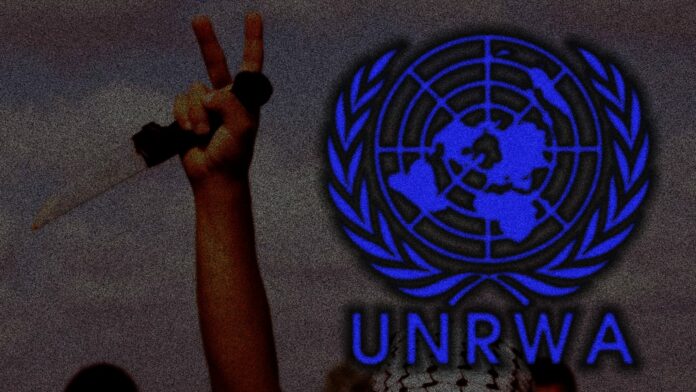Palestinian refugees are different from all other refugees. The granddaughter of a Palestinian who has lived her entire life in Jordan can be a refugee. Mohamed Hadid, the celebrity Palestinian real estate developer and the father to models Bella and Gigi, who is a successful citizen of the USA, is considered a Palestinian refugee. Most Palestinians in New Zealand, no matter their residency status, are classified as refugees. To this day, all Palestinians displaced as a result of the 1948 Arab/Israeli conflict, including their descendants, no matter where they are, are refugees according to the UN. This criterion does not apply to any other group of displaced people.
No wonder then that the UN agency (UNRWA) – originally set up for a three-year term in 1949 by the UN General Assembly to provide relief to refugees displaced as a result of the 1948 conflict – has become a politicised and entrenched institution. It exists not to resettle refugees, but to perpetuate the conflict by promising Palestinians that they will one day be able to return to what is now Israel. This false promise remains the cornerstone of the Palestinian political movement. It is also the single most important reason why all peace negotiations have inevitably failed. It is why you hear the controversial chant ‘from the river to the sea, Palestine will be free,’ even in New Zealand.
70 years after its establishment, UNRWA continues to operate in five different regions, providing education, healthcare, and social services. It serves only Palestinian refugees; refugees from the countless other conflicts in the world are served by UNHCR, the agency that actually works to end the status of refugees. UNRWA receives annual funding of $1.1 billion USD from a mix of United Nations member states and charitable organisations, which amounts to roughly twice the per capita funding received by the UNHCR (approximately $220 per refugee vs $121 per refugee). Most of the budget is allocated to paying salaries.
UNRWA was established with good intentions – to provide relief to displaced Palestinians. However, corruption and political interference over decades has decayed its neutrality. In fact, according to some analysts, UNRWA in Gaza has become the de facto ‘above ground’ welfare arm of Hamas.
Thus, the recent news that New Zealand will review payments to UNRWA until more is known about the involvement of their staff in the atrocities of October 7th, is a sensible decision. It follows similar pronouncements by Australia, the United States, the United Kingdom, Germany, Italy, Japan, Finland, Switzerland, Austria, Iceland and other Western nations.
Advocacy groups have, for years, called on Governments around the world to suspend their funding of UNRWA. We have known for decades that their schools have taught children to glorify terror, that their staff have been members of terrorist groups, and that their facilities have been used by these groups. Frustratingly, when presented with the evidence, UN officials have typically denied them, and only taken meagre action when pushed.
Sadly, it took UNRWA staff’s involvement in the worst terrorist attack in Israel’s history – brutal rape, murder, torture, and kidnapping – for the spotlight to shine on the organisation. Predictably, UNRWA denied the allegations, attacked the messengers, and expressed disbelief. Now the UN is brushing away the charges by saying that the 12 UNRWA staff accused of being complicit in the attacks are merely ‘a few bad apples.’ Decades of evidence indicate that these bad apples, in fact, fill the whole barrel.
For example, in March last year, UNWatch in partnership with IMPACT-se released a comprehensive report exposing the pervasive presence of incitement to hatred within the UNRWA school system. They provided evidence of Gazan children being indoctrinated with the belief that they must use violence to regain their homes lost during the ‘Nakba’ or the 1948 conflict.
Another recent report by UNWatch finds widespread support for the October 7th atrocities among UNRWA Teachers in Gaza. Screenshots of 249,000 Telegram messages show murderers and rapists being praised as “heroes,” the glorifying of the “education” the terrorists received in UNRWA, the gleeful sharing photos of dead or captured Israelis, and the exhortation of their execution.
On the 29th of January, the Wall Street Journal reported that out of 12,000 UNRWA employees, 1,200 (10%; 23% of all male employed) are ‘operatives’ of Hamas and Islamic Jihad, and about half have close relatives who belong to these militant groups. These statistics may be unsurprising to those who read the reports of UNRWA staff hiding Israeli hostages and weaponry within their homes. In fact, claims of infiltration by Islamic terrorist groups into UNRWA have been circulating for over a decade, with evidence suggesting that UNRWA is now significantly entwined in these groups’ sinister operations.
Knowing this, the continued funding of this compromised organisation presents a moral dilemma for New Zealand. While there’s an inclination to demonstrate our commitment to humanitarian values as a conscientious member of the UN, we must not forget that Hamas aims to annihilate Israel, turning anything associated with it into an obstacle for peace. Ignoring this reality is bad faith and risks New Zealand’s reputation as a neutral party in Middle Eastern affairs, potentially excluding us from playing a constructive role in future peace negotiations as an unbiased mediator.
With the heart-wrenching devastation of Gaza, our humanity compels us to rally behind its reconstruction and recovery in the years ahead. Numerous aid organisations, such as the ICRC, UNOPS and the WFP, are poised to undertake this vital role and we must support them. What is clear, however, is that UNRWA should not play a role, and we cannot continue to fund it if we are truly committed to a final status peace agreement.
- Josh Brown is Executive Director of The New Zealand Israel Innovation Hub.



